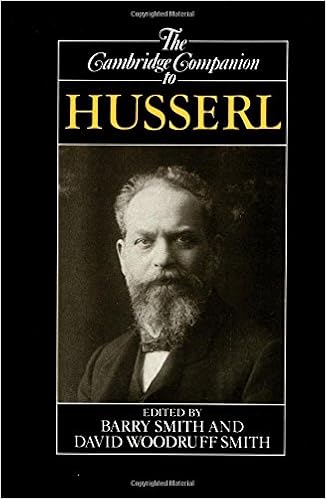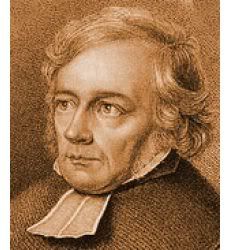
This is an overview; it doesn’t have that much to do directly with Tillich or theology. The Husserl ideas I’m going to discuss really have very little to do with Tillich. It is important to understand phenomenology its attitudes and its methods, to clear up some of the basic misconceptions about phenomenology as a whole before beginning the discussion Tillich and his concept of God, because pheneomonlogical attitude is very important to Tillich, as is Heideggerian phenomenology and its relation to ontology.
Gallagher and Zahavi demonstrate many examples of the term phenomenology being used wrongly by scientists to designate a first hand account of a phenomenon. One example they offer is atheist top gun Daniel Dennett who charges phenomenology with employing “introspective methodology.” Metzinger is sited as making similar comments.[1] As our authors point out, these citic’s arguments are based upon the accounts of difficulties with first hand approach to data generation. The conflict arises in differences between first hand accounts. Metzinger apparently takes “data” to be bits of information extracted by measurement devices. This is a tendency I observe in the critique of Proudfoot in the Trace…reductionists seek to eliminate the person, there is no personal first hand dimension to knowledge, it’s all mechanical and what can be produced in such a way as to quantify and end all dispute. According to Metazinger data must be extracted from a well defined intersubjective procedure, must be open to criticism, and constantly seeks impendent verification.[2] The problem with phenomenology is that it supposedly doesn’t fit these characteristics because it’s introspective. Yet Gallagher and Zahavi dispute the idea that phenomenology is based upon introspection.
Consider Husserl’s Logical Investigations, a recognized milestone in the twentieth century philosophy and indisputably a work in phenomenological philosophy. In fact, Husserl himself to it to be his “breakthrough” to phenomenology. What kind of analysis does one find in this book? One finds Husserl’s famous attack on and rejection of psychologism; a defense of the irreducibility of logic and the ideality of meaning; analysis of pictorial representations; a theory of the part-whole relation; a sophisticated account of intentionality; and an epistemological clarification of the relationship between concepts and intuitions, to mention just a few of the many topics treated in the book. Does Husserl use an introspective method, and is this a work in introspective psychology? Anyone who reads logical investigations should answer ‘no,’ since what we find there are clearly philosophical arguments and analyses. Rather than concluding that shi work is not phenomenology, one should rather consider the hasty identification of phenomenology and introspective psychology.[3]
To this response we might also add two more points. First, what the reductionsts are seeking to do is to pigeonhole phenomenology into the categories that allow for the big tricks of reduction to played on it: label, redefine, lose the phenomena. Secondly, because Phenomenology is not hard science it can’t be subjected to the methods of hard science and thus must be fitting into categories that would allow the reduction to take place. The reductionist cannot recognize the categories of phenomenological thinking or it would have to recognize the validity of another method and admit that there is more than one source of knowledge. This admission is counter to the basis of reductionism so it must be avoided, thus phenomenological categories must be ignored and phenomenological method must be fitted into reductionism’s categories.
Gallagher and Zahavi argue that many of Husserl’s observations were refined by subsequent thinkers such as Sartre, thus contradicting the notion that they were merely introspective. They point out that they can’t find an example of anyone rejecting Husserl’s views on the basis that they have better introspective data.[4] Metzinger claims that phenomenology can’t generate a growth of knowledge; there is no way to reach an inter-subjective consensus on things likes “this the purest form of blue.” But, as Gallagher points out, the kinds of claims Metzinger uses as examples are not the kind usually made by phenomenological philosophers, “and to suggest so is to reveal one’s lack of familiarity with the tradition in question.”[5] As he says, “Phenomenologists would typically argue that it is a metaphysical fallacy to locate the phenomenal realm in the mind, and to suggest that the way to access and describe it is by turning the gaze inward.”[6] The divide between inside and outside is a naive “common sense” metaphysics and is suspect when used as a clue to understanding consciousness, as Husserl points out.[7] The charge of introspection is based upon the metaphysics of this divide between inner and outer. “To speak of ‘introspection’ is to (tacitly) endorse the idea that consciousnesses is inside the head and the world is outside.”[8] That probably sounds entirely reasonable to a lot of reader, after all our brains do the perceiving they are in our heads, at least for most. The world is presumably outside our heads. But the problem is arraign one’s metaphysics to assume that all that is in the head is false and untrustworthy and all that is outside is objective and transparent, this is merely an attempt to arrange the world according to an ideology schematic rather than allowing the sense data to suggest the categories that we use to understand things. After all our understanding of the world is our only conduit by which we can understand. We have no other means but our perceptions, thus all the assumed “rock solid” of the objects we subject to reduction become merely the constructs we build in our heads according to pre conceived categories. Where else would these categories be kept but in our heads. Reductionism takes place in the mind. So the reductionist is fooling herself in thinking that the methods she chooses are immune to the same slipperiness of “subjectivity” and somehow become rock solid merely because they are examinations of things taken to be rock solid. That’s the mistake alluded to above that thinking that examining an objective reality makes the examination of it objective.
Nor is phenomenology merely a study of the subjective. Phenomenologists do not locate the phenomenal realm within the mind. Phenomenology is about the world as it actually is and as it appears to us, it is not about “inner truth.” [9] Phenomenology is concerned with phenomena and their appearances. Some philosophers understand phenomena to mean the immediate givenness of the object. Yet most phenomenologist do not make an easy one-to-one association between phenomena and appearance. Appearances can be deceiving, but neither do they assume a reality behind the appearance. The appearance is not a smoke screen to get out of the way before we can discover the truth of the object. Phenomenologists do not understand reality as two separate realms, one of appearances and one of hidden realities. Rather than regard questions of reality and modes of appearance as unimportant or merely subjective such an investigation is of philosophical importance.[10] Husserl’s early investigations were based upon the consideration that he was providing a new epistemological foundation for science. He soon realized that “rather than focusing exclusively upon the objects of knowledge we should describe and analyze the experiential dimension in detail in order to disclose the cognitive contribution of the knowing subject.”[11] Science is so absorbed in its investigation of the natural world it does not reflect upon its own presuppositions and “conditions of possibility.”[12] To accomplish this we need to bracket our natural attitude because that will lead to naïve acceptance of “common sense” approach. This is not a form of skepticism. No one doubts that the world exists; the bracketing is not metaphysics but an aid to focus. It is rather a suspension of our natural inclination to regard the world as we do, as a world of appearances of objects to focus upon.
Husserl calls this suspension epoche’ (ep-osh-ae); “The purpose of the eopche’ is not to dobut, neglect abandon or exclude reality from consideration; rather the aim is to suspend or neutralize a certain dogmatic attitude toward reality.”[13] We are to focuss directly upon reality as it is given in whatever way it makes its appearance to us. In other words “the epoche’ is a change in attitude toward reality”[14] This will become important in dealing with Tillich the phenomenological attitude toward reality. What the epoche’ rules out is “taking the world for granted” as Gallagher and Zahavi put it.[15] But this epoche is not a one time accomplishment, it’s not an attitude once adopted automatically delivers the goods. One must continually accomplish the adoption of this attitude and then begin other procedures as well. It is important to remember this attitude is not a turn inward. It is not a search of one’s inward self to find truth, although in dealing with the question of God and being itself one might have to turn inward at some point, in so doing one Is not doing phenomenology per se. Phenomenology is not closing off from the world around us or a turn inward to some inner truth. Phenomenology continues the connection to the world but regards the perception of it as well as the thing perceived.
The real difference with phenomenology as theological method, from past uses of theological method, is that it starts from human experience of life in the world, not from first principles or logical axioms. This is why the empirical evidence of religious experience will be so crucial, because that is a quantitative means of learning something about how certain humans experience their world in the relation to what they believe to be the divine. Of course this is not to rule out logic or first principles. The approach must be global. No one would demand this more than Tillich himself who believed that the method must be tailed to the problem. The problem of God and being is a global one. This problem involves all that is and all that we experience of life.
Inter-subjectivity
Moving beyond the subject/object dichotomy is a major aspect of phenomenological method. In the last chapter I discussed the pretense of objectivity. The alternate fear on the other side of the God camp is fear of subjectivity. The alternative to “subjectivity” is “iner-subjectivity.” Victory Daniels Emeritus, professor of psychology at Sonoma state university. Defines inter-subjective in this way:
intersubjectivity: The process of several, or many people, coming to know a common phenomenon, each through his or her subjective experience, and relating their experiences to each other.[16]
The inter-subjective is a major issue as it is the alternative to atheist fear of the subjective, and the inability to provide “objective” data in direct documentation of something is beyond our ability to understand and its not given in sense data. The only way to get at something that only be experienced and can only partially be described is to get at through the subjective experience. But the subjective experience is a problematic in terms of verification. Thus we need a chorus of subjective sources which can relate to each other and form an inter-subjective understanding.
A good example would be the occurrence of religious experiences of the kind referred to as “peak” or “mystical” that I talk about in The Trace of God. Mystics from around the world, throughout history and in all cultures have the same kinds of experiences; they describe them in the same way. Many people often believe intuitively that they do not have the same kinds of experiences but thanks to the empirical research done by Ralph Hood Jr. of the University of Tennessee at Chattanooga we know now that they do. Hood validated the writings of W.T. Stace who created a theory of mystical experience by reading many of the major mystics of the world. Thanks to Hood’s invention of the research study instrument called “the M scale” we are able validate the nature of a mystical experience and distinguish it form other kinds of “religious” or “strange” phenomena. Thus we can measure different kinds of experiences against each other and determine the differences and similarities in various mystical writings.[17]
Verification
When I make the argument that science can’t tell us about God, atheists are more likely than anything else to say that “science is the only form of verification that can systematically demonstrated every time.” Of course that is irrelevant to the issue that science can’t tell us about God. It is also untrue, there are other means of verification; it all depends upon what one wishes to verify. There are forms of verification for phenomenology, but the major pitfall that we must avoid expecting the sort of verification we have in science, we must not expect the kind of results we have in science. We can’t duplicate scientific results with phenomenology, but we can have a phenomenological form of variation. Again, phenomenology is complex, layered, dividing into schools and this is a shallow overview of phenomenology as it pertains to theological methods. I am not aiming to give the kind of depth to the topic that I would if the whole work was about phenomenology. Some suggest that the purpose of phenomenological method is to “’see’ the logic of meaning, of an experience, for any subject, rather than to discover causal connections or patterns of correlation.”[18] Of course this is phenomenology in psychology, not philosophy. That should be a sore subject with some atheists since the scientisitic type shows her true colors by rejecting as scientific any use of phenomenology on the grounds that “philosophy is just made up” but they totally ignore the fact that phenomenology is also used in science. Gallagher and Zahavi argue above that the purpose is to understand the perception of the perceiving subject rather than the material “essence” of a given object. Thus these two purposes coincide where the “social science” purpose also dealing understanding the perspective of the perceiving subject. To that extent verification, even scientific verification, is possible in verifying the inter-subjective perceptions of various subjects or in terms of the relation of the overall phenomenological methodology to some sort of “hard data.”
For example, I have seen atheists argue on the internet that inter-subjectivity is still subjective and as such has no validity and is merely a fantasy unsupported by any sort of hard data (as though subjective consciousness is not part of human experience). There is hard scientific data that supports the validity of inter-subjectivity as a category in human perceptions and demonstrates a biological basis for it. The discovery of mirror neurons is of great importance for the verification of inter-subjectivity.
G. Rizzolatti and V. Gallese found in experiments with primates that a set of neurons in the premotor cortex represents the visually registered movements of another animal. The activity of these mirror neurons presents exactly the same pattern of activity as appears in the movement of one's own body. These findings may be extended to other cognitive and emotive functions in humans. I show how these neurological findings might be “translated” phenomenologically into our own experienced sensations, feelings and volitions.[19]
While hard data can verify aspects of phenomenological method, the danger, as Dukes points out, is that in search of such “hard data” confirmation subjects often wind up being treated as objects of experimental manipulations.[xx] Thus “phenomenology” winds up with the same problems that it tried to go around in hard science. Phenomenology offers an addition to human sciences, but only if it maintains its actual perspective and doesn’t expect to duplicate results of hard sciences.
Sources
[1] Gallagher, op cit, 20. Dennett is sited for Consciousness Explained, 1991, 44.
[2] Ibid.
[3] Ibid.
[4] Ibid.
[5] Ibid. 21
[6] Ibid.
[7] Ibid, Hsserl, Logical Investigations, is sited.
[8] Ibid.
[9] Ibid.
[10] Ibid. 22
[11] Ibid. references Logical Investigations, 2001 edition 170
[12] Ibid.
13] Ibid, 23
[14] Ibid.
[15] Ibid.
[16] Victor Daniels, Pdf lecture notes Sonoma State University web site: URL: http://www.sonoma.edu/users/d/daniels/phenomlect.html visited 6/16/10
[17] references to M scale in Trace of God (find)
[18] Sheree Dukes, Abstract: “Phenomenological Methodology” in the Human Scineces.” The Journal of Religion and Health, Neatherlands: Springer.Vol 23, no 3, Sept 1984. 197-203
Dukes was in the Department of Psychology Boston Universlity.
[19] Dieter Lohmar. Abstract, “Mirror Neurons and the Phenomenology of Inter-Subjectivity.” Phenomenology and the Cognitive Sciences, Netherlands: Springer, (Volume 5, no 1) March, 2006, 5-16.
[20] [xx] Dukes, op cit.




